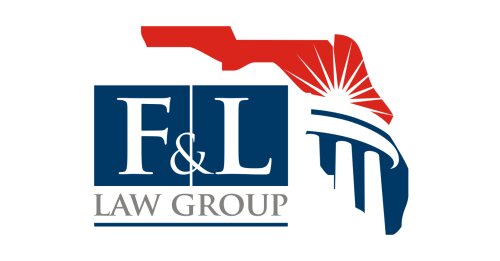Best Brain Injury Lawyers in Fort Myers
Share your needs with us, get contacted by law firms.
Free. Takes 2 min.
List of the best lawyers in Fort Myers, United States
About Brain Injury Law in Fort Myers, United States
Brain injuries can have significant physical, emotional, and financial consequences. If you or a loved one has suffered a brain injury in Fort Myers, United States, understanding the legal aspects is crucial. Brain Injury Law in Fort Myers is designed to protect the rights and interests of individuals who have experienced brain injuries due to negligence or wrongful actions of others.
Why You May Need a Lawyer
There are several situations where consulting a lawyer specializing in brain injury cases is advisable:
- If the brain injury was caused by a car accident, slip and fall, workplace incident, medical malpractice, or any other type of accident due to someone else's negligence
- If the insurance company is denying or undervaluing your claim
- If there is a need to negotiate a fair settlement with the responsible party
- If you require assistance in filing a claim with the appropriate legal entities
- If you are unsure about your rights and legal options regarding brain injury cases
Local Laws Overview
Local laws in Fort Myers that pertain to brain injuries include:
- Statute of Limitations: There is a specific timeframe within which a brain injury claim must be filed. In Fort Myers, this is typically within four years from the date of the incident.
- Comparative Negligence: Florida follows a comparative negligence law, which means that if the injured party is partially at fault for the brain injury, their compensation may be reduced proportionally.
- Damage Caps: In some cases, there might be limitations on the amount of compensation that can be awarded for certain types of brain injuries. It is important to be aware of these caps.
Frequently Asked Questions
1. Can I file a brain injury claim if the incident happened a while ago?
In Fort Myers, brain injury claims generally have a statute of limitations of four years from the date of the incident. It is best to consult with a brain injury lawyer to understand your legal options.
2. What damages can I seek compensation for in a brain injury case?
You may seek compensation for medical expenses, rehabilitation costs, lost wages, pain and suffering, emotional distress, and other related damages. A brain injury lawyer can help assess the damages specific to your case.
3. How long does a brain injury case take to resolve?
Brain injury cases can vary in duration depending on various factors, such as the complexity of the case, negotiations with insurance companies, and court proceedings. It is best to consult with a lawyer for an estimate based on your individual circumstances.
4. What role does the insurance company play in brain injury cases?
The responsible party's insurance company may be involved in providing compensation for your brain injury. However, insurance companies often try to minimize payouts. Consulting a brain injury lawyer can help ensure you receive fair compensation.
5. How much does hiring a brain injury lawyer cost?
Many brain injury lawyers work on a contingency fee basis, which means their fees are based on a percentage of the compensation awarded. This arrangement typically requires no upfront payment, but it is important to discuss fees with the lawyer during the initial consultation.
Additional Resources
For further information and support related to brain injuries, consider reaching out to the following resources:
- Brain Injury Association of Florida: www.biaf.org
- Florida Department of Health: www.floridahealth.gov
- Florida Justice Association: www.floridajusticeassociation.org
Next Steps
If you require legal assistance for a brain injury case in Fort Myers, it is recommended to:
- Gather all relevant documents and information about the incident and the resulting brain injury.
- Research and select an experienced brain injury lawyer who specializes in handling cases in Fort Myers.
- Schedule a consultation with the lawyer to discuss the details of your case, evaluate your legal options, and understand the potential outcomes.
- Follow the guidance and advice provided by your lawyer throughout the legal process.
- Maintain regular communication with your lawyer and provide any additional information or documents required for your case.
Lawzana helps you find the best lawyers and law firms in Fort Myers through a curated and pre-screened list of qualified legal professionals. Our platform offers rankings and detailed profiles of attorneys and law firms, allowing you to compare based on practice areas, including Brain Injury, experience, and client feedback.
Each profile includes a description of the firm's areas of practice, client reviews, team members and partners, year of establishment, spoken languages, office locations, contact information, social media presence, and any published articles or resources. Most firms on our platform speak English and are experienced in both local and international legal matters.
Get a quote from top-rated law firms in Fort Myers, United States — quickly, securely, and without unnecessary hassle.
Disclaimer:
The information provided on this page is for general informational purposes only and does not constitute legal advice. While we strive to ensure the accuracy and relevance of the content, legal information may change over time, and interpretations of the law can vary. You should always consult with a qualified legal professional for advice specific to your situation.
We disclaim all liability for actions taken or not taken based on the content of this page. If you believe any information is incorrect or outdated, please contact us, and we will review and update it where appropriate.










